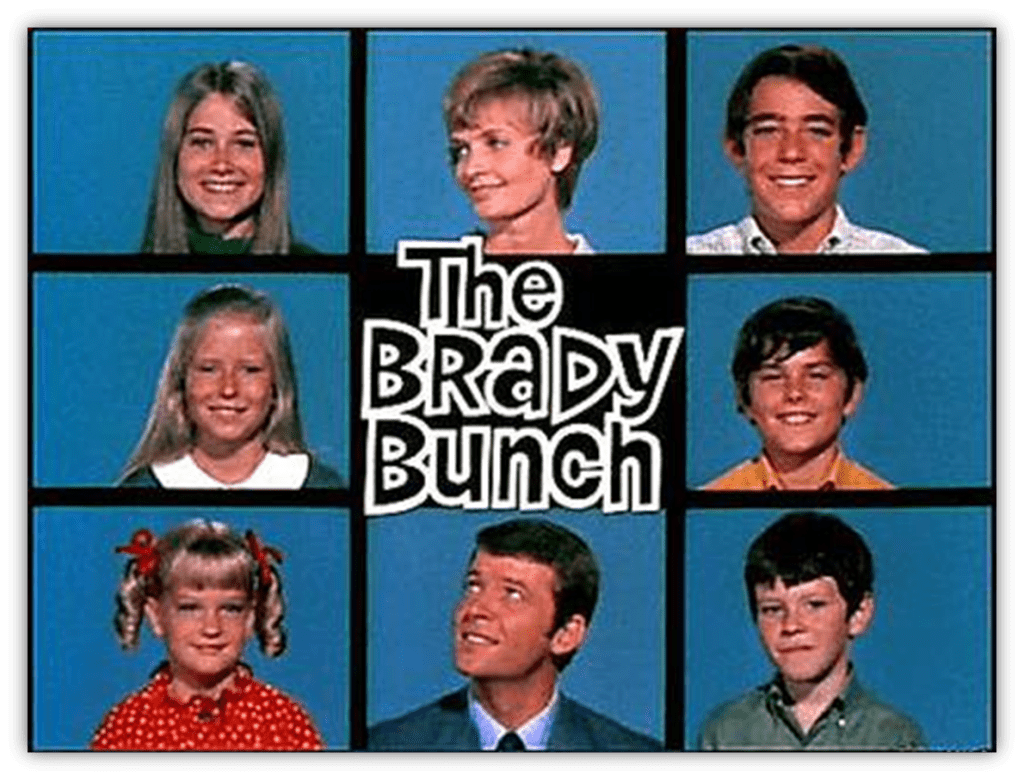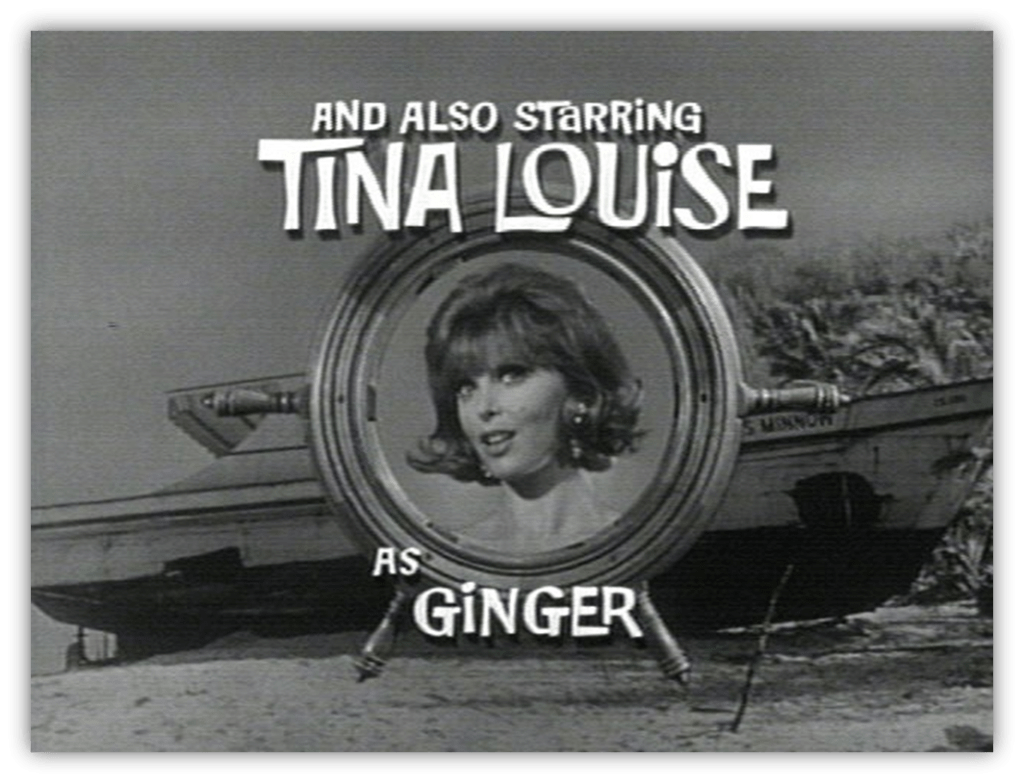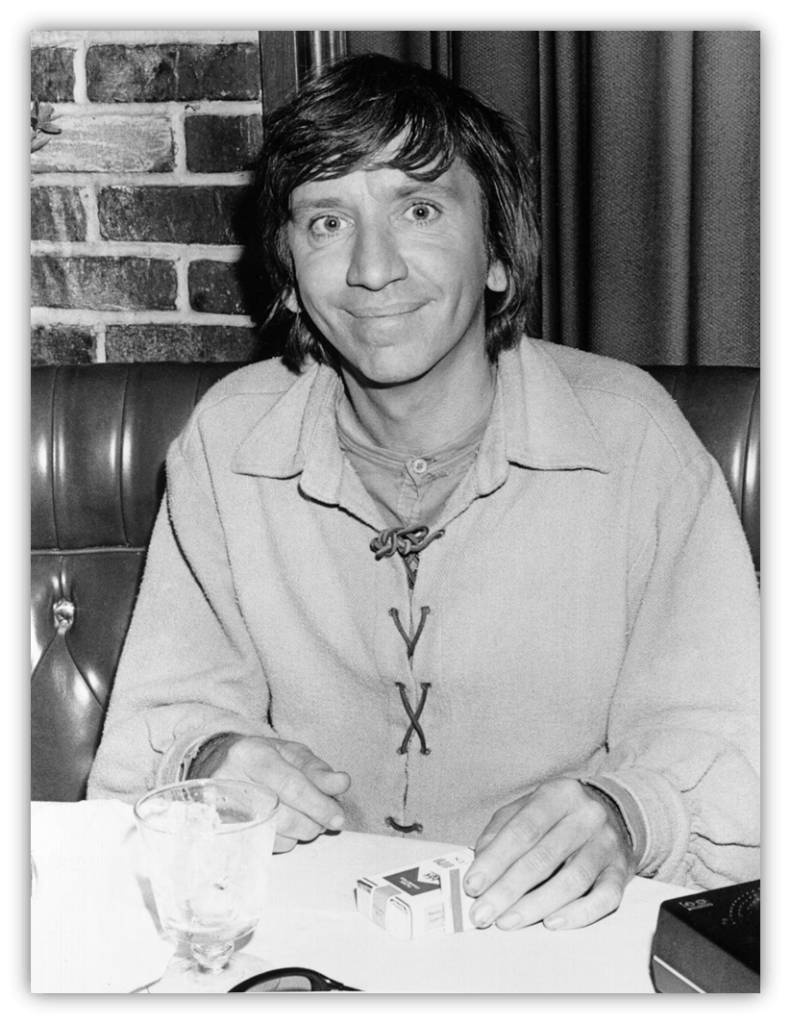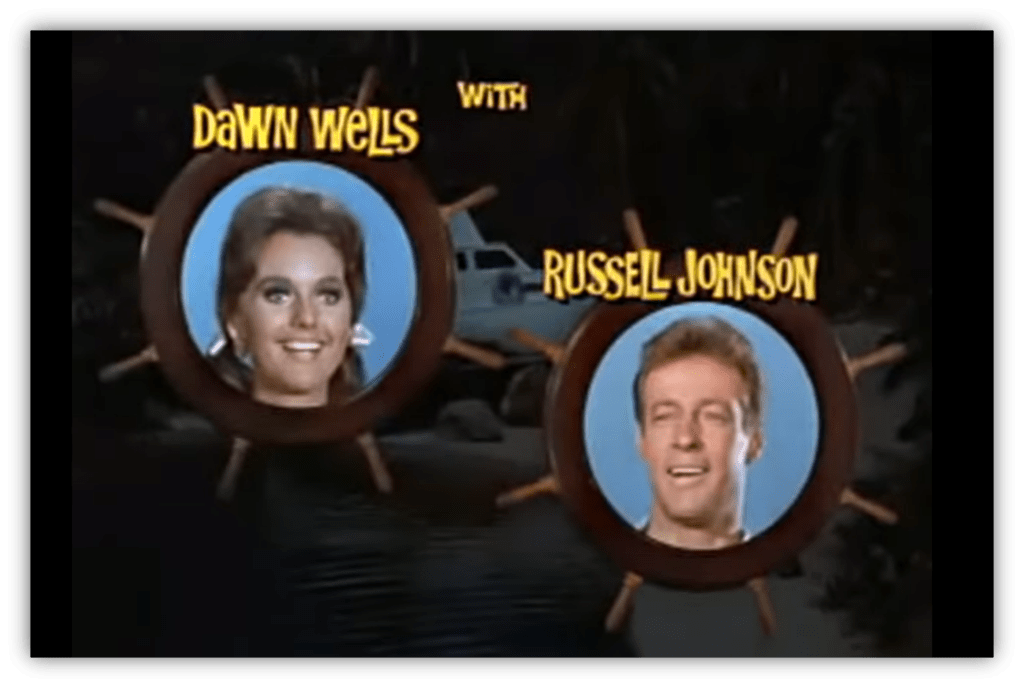I’ve always liked this paraphrased spin on The Golden Rule:
Do unto others… even if no one’s watching.
And that’s the key. It’s easy to do the right thing when you’re being applauded for it.

But what about when very few people – or sometimes no one notices?
Those times when you could crow about how you were awesome to someone and take the credit… but choose not to?
Below are four real-life moments when famous folks quietly chose kindness, humility, or decency, simply because it was the right thing to do.
Bob Denver Gets A Theme Song Changed
Last week, a television program that I have never heard of before topped the network charts, with a staggering 5.8 million viewers.

That’s a lot of people tuning in, right?
Hold my coconut milk:
In the 1960s, a show that ranked 25th in the season’s ratings derby still brought in 23 million viewers each week. That “moderate hit” was Gilligan’s Island.
A preposterously silly sitcom created by Sherwood Schwartz:

A guy who proved that the key to becoming a future TV Land fixture was to be able to explain the entire concept of a show in a one-minute theme song.
Even six-year-old me knew that this was a masterstroke of marketing-meets good-old-fashioned showbiz acumen.
But at the same time, it seemed to me that part of the reason for the show’s popularity was due the the fact that the lead character was a particularly unselfish and good soul. And as is often the case, art imitates life.
Bob Denver’s quiet advocacy for his fellow castmates is a sweet example of professional, and largely anonymous generosity in Hollywood.
During the first season of Gilligan’s Island in 1964, the show introduced the castaways, including Gilligan, The Skipper, the millionaire and his wife, and a movie star. However, Mary Ann (Dawn Wells) and The Professor (Russell Johnson) were simply referred to in the theme song as:

“… and the rest.”
The exclusion was a primarily contractual decision.

For dramatic effect, and perhaps as a bit of a star-move as well, Tina Louise had negotiated to be listed last in the credits.
This left Wells and Johnson in an awkward position: they were main characters, but weren’t specifically named or seen in the opening credits or theme song. While this might seem a trivial matter, even in the pre-IMDB days: proper and equitable placement in a show’s introduction was very important to an actor’s career.
Bob Denver, the star of the show, recognized the unfairness of this situation. As negotiations for the second season began, he took decisive action.

During his contract negotiations, he suggested that his castmates be added to the opener.
The producers were not keen on spending money on a re-worked theme, and quickly dismissed the idea.
What they had neglected to do was read the fine print in the credits clause of Denver’s own contract. When the new theme idea was vetoed, he then exercised his option for his name and likeness to be removed from the credits – entirely. And he was 100% serious.
This was a bold move that demonstrated Denver’s commitment to fairness over his own star billing.

The producers quickly realized that you couldn’t have a Gilligan’s Island without a Gilligan, and so they acquiesced to his demands.
The theme song was re-recorded, and changed to specifically name “The Professor and Mary Ann” instead of relegating them to “and the rest.” This change not only gave Russell Johnson and Dawn Wells the recognition they deserved:

It also created the version of the theme song that most viewers remember today.
What made Denver’s gesture particularly meaningful was his stipulation that no one – especially Wells and Johnson – was to learn anything about the entire situation.
The producers were instructed to tell the actors that there had been a “change of heart,” and that starting with Season 2, all seven performer’s character names and faces would be seen.
In an industry often marked by ego and competition, Bob Denver’s quiet act of kindness ensured that fairness and camaraderie remained at the heart of Gilligan’s Island.
Proving that sometimes, the greatest hero is the one who stands up for others behind the scenes.
Barry Manilow’s Good-Sport Self-Awareness
A few years ago, I got dragged to a concert I never would’ve picked for myself.
You know the kind: something you’d normally dodge with a flimsy excuse about needing to catch up on your laundry. But it was important to someone, so I Mandyed up and went.

Three-quarters into the show, Barry Manilow stopped mid-performance. He looked out into the audience and said:
“I want to say something to all the boyfriends, husbands, and other guys who got dragged here tonight.
You’re good guys.
You’re good men.
I appreciate that you came. I hope you’re having maybe just a little bit of fun.”
Then, with a grin, an exaggerated cadence, and a perfect eyeroll:
“Let’s face it — you probably had a lot of better things to do tonight than sit through a Barry Manilow concert.”
Everybody laughed. Particularly the guys who’d given up their bowling night. It was a perfect moment, a wink of self-awareness, a thank-you hidden in a punchline. But that wasn’t the only time Manilow showed some self-effacing class.
For much of the 1980s, Bloom County was the most popular comic strip in America.
Its creator, Berkeley Breathed, loved taking jabs at celebrities, and Manilow was a regular target.

Opus the Penguin famously called his music “marshmallow fluff with a perm.”
Years later, the two actually met — randomly — on the street in Los Angeles.
Breathed was walking with his young son when they bumped into Manilow. He braced himself for an awkward moment:

“I remember walking; I was in Santa Barbara, maybe 18 months ago.“
“I was scootering with my little boy down State Street, and I pass a fellow and zip right around his feet and keep going, and I realized who it was. And I stopped, and I told my kid to follow me, and I came back and confronted him, which I would never normally do. And it was Barry Manilow.“
“Who appeared many times in my comic strip, and probably not in the most flattering ways, in 1985.“

“In fact, I was probably fairly merciless with him . . .“
“And I walked up to him and introduced myself, and he remembered who I was. We both remembered that he sent me a bouquet of flowers when I had broken my back in 1987 in a flying accident.”

“The target of my meanest cartoons ?
Sent me a massive bouquet of flowers. To my hospital.”
“And we both remembered that, and we laughed about it, and he turned to my son and said,“

“This is one of the greatest cartoonists of our generation.”

“And I turned to my boy, and I said, “This is one of the greatest and most famous singers of our generation.”
“And I realized I would … I don’t have it in me now to do that again. It’s under the category of things that I do differently now. I’m not the same guy I was in 1985. Fortunately, my sense of humor hasn’t completely been defeated, but…”
Sometimes the high road isn’t a detour. It’s just how some people are wired.
In a world quick to judge and quick to mock, Barry Manilow’s blend of humility, kindness, and good humor reminds us that grace, both given and received, is the ‘one voice’ we all could use a little more of.
George Carlin’s Quiet Mentorship
In the early 1970s, a young, awkward comic was struggling to find his footing on the stand-up circuit.
His material was sharp but unconventional. Introspective, nervous, and cerebral. A few of his sets landed. Most didn’t.
The young comic was at a pivotal moment, passionate about comedy but uncertain about his prospects.

When he learned that a stand-up legend was performing in Phoenix, he took an unlikely chance.
He drove two hours to the Celebrity Theater, armed with a notebook of his jokes, seeking out one of comedy’s most respected voices:

George Carlin.
The aspiring comedian was able to get a handwritten note delivered backstage after the show. To his amazement, Carlin responded, and invited him to come into his dressing room for a sit down and a talk.
The comedian presented his material to Carlin, who reviewed the pages and delivered an assessment that would prove prophetic:

He had “funny stuff on every page” and that “he should keep pursuing comedy.”
That early encouragement from Carlin became a cornerstone moment in Garry Shandling’s development as a comedian.
The veteran comic’s validation gave the discouraged newcomer the confidence to continue honing his unique voice:

One that would eventually revolutionize television comedy through It’s Garry Shandling’s Show and The Larry Sanders Show.
Carlin had spotted something authentic in Shandling’s work:
An erudite, introspective approach to comedy that was unconventional but genuinely funny. His early recognition of Shandling’s potential demonstrated the same sharp eye for innovation that made Carlin himself a transformative figure in stand-up.
The relationship between the two comedians represents one of comedy’s meaningful mentorship moments.
It wasn’t built on ongoing guidance or public gestures, but instead: on a single, generous instance. An established artist recognized an unknown talent’s hunger, and offered the encouragement needed to keep going.
Fred Rogers Took Time for a Limo Driver
Maxwell King’s biography The Good Neighbor: The Life and Work of Fred Rogers is a great read.

King recounts many stories about the goodness and humanity of the beloved cardigan-clad neighborhood friend.
In the early 1980s, Mister Rogers and an intern had travelled to Boston to meet with an important television executive.
After the meeting, a limousine was hired to take them to the executive’s home for a dinner to honor Rogers. When they arrived, the limo driver, named Billy, asked what time he should pick them up after dinner.
To the bewilderment of the hostess, Fred invited him in to the dinner.
After the meal was over and it was time for Rogers to return to his hotel, he sat up front in the limo with Billy. Just to get to know him.
Fred and the intern were having a great time, and so they made a spontaneous decision to continue the evening.
At Billy’s house. To meet his parents.

He played the piano as people from around the neighborhood came to listen, and it became an impromptu and unforgettable party.
Rogers sent the driver notes and kept in touch with him for the rest of his life. A few years later, when Rogers learned that Billy was dying of AIDS, he took time to call him in the hospital.

Fred Rogers’ genuine kindness and willingness to see and honor every person, no matter their role in life, reminds us that true neighborliness is about connection, compassion, and showing up for others, especially when they don’t expect it.
Not everyone takes the high road. Sometimes people take the shortcut. The low blow. The credit that wasn’t theirs.
But every now and then, someone quietly, beautifully chooses grace.
In a world that often rewards showmanship and self-promotion, these moments remind us that true greatness lies in quiet acts of kindness, humility, and generosity.
Especially when no one is watching.






Really lovely, mt. And a lot to chew on in this moment. Thanks!
These are great stories. It’s easy to dig up dirt on famous people and to even revel in it, especially with news feeds on our phones 24/7 these days. “Build ’em up to knock ’em down” is the common phrase for it. But there are probably countless acts of kindness done on the down low that go unnoticed, as not everyone is all about themselves and their egos, as much as we make a sport out of that stereotype. Thanks for highlighting some of the good today.
These are really good stories and I hadn’t heard any of them, which is the point, I guess.
I was at the blues jam last night and we have a regular who is a very small woman who uses a cane or a crutch. At the end of the night, a new guy carried her bass out to her car for her. Then he came back for his own stuff.
It wasn’t much effort on his part but he did it. These little kindnesses make a lot of difference.
Wonderful piece. And just like you to look for the good in people.
Atta boy, mt58.
Thanks for this mt. Heartwarming. You know, we all can do this, too. In little ways. I hope I do this for someone, somewhere. This is what makes the world survive a little longer without imploding.
These stories are incredible, and I’ve never heard of any of them before. Thanks for sharing this, great post!
This is wonderful, mt! I’d always wondered why Mary Ann and the Professor were left off the original song, and why it was changed to include them. Bravo, Bob Denver!
WHO IS CUTTING ONIONS IN HERE RIGHT NOW!?